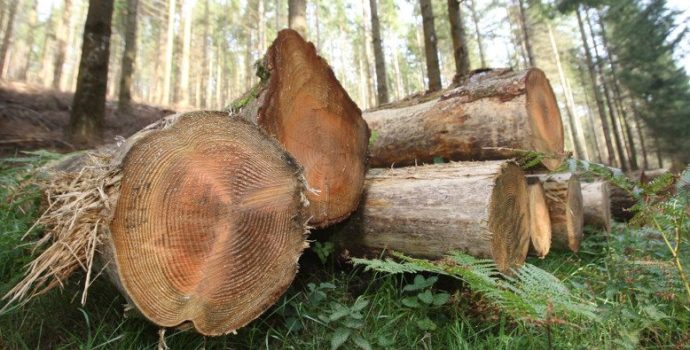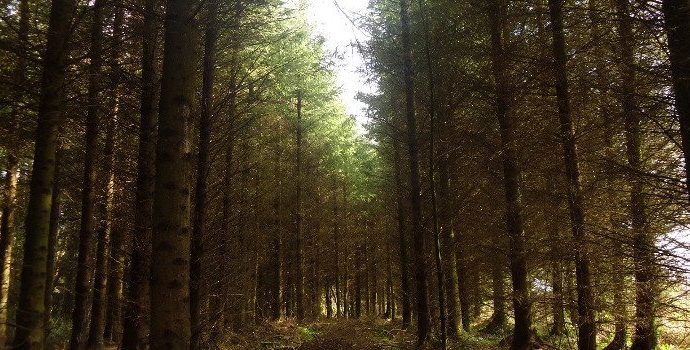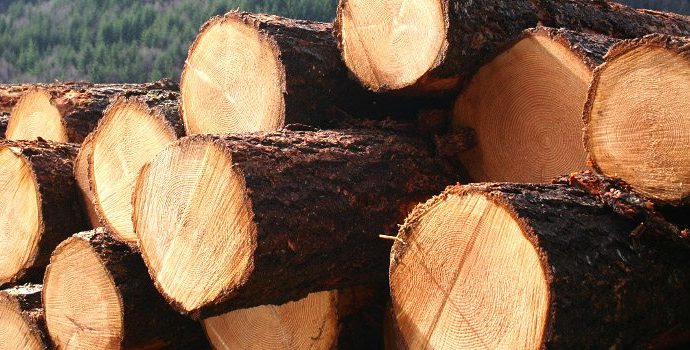Your Guide to Woodland Taxation

To encourage commercial forestry farmers can benefit from a range of tax incentives designed to encourage investment. IFA has developed a guide to woodland taxation to assist farmers in understanding their tax options and obligations.
Below is a summary of the document, which can be downloaded here.
Tax Clearance Certificates
Tax Clearance Certificates are required for all forest owners in receipt of annual forestry premium payments and/or grants exceeding €10,000.
Income Tax
The profits from the occupation of woodland in the State which is managed on a commercial basis and with a view to a profit are exempt from Income Tax and Corporation Tax (but not Universal Social Charge and Pay Related Social Insurance) under section 232 Taxes Consolidation Act 1997.
Pay Related Social Insurance
The profit from forestry for each year is fully liable to PRSI. Profit is defined as a financial gain when the amount of revenue earned exceeds the expenses, costs and taxes of producing timber. Farmers pay Class S contribution at a rate of 4%. S Class contributions entitle a farmer to the Treatment Benefit Scheme and to the State Pension (Contributory) at the age of 66 years.
Universal Social Charge
USC is a tax payable on total income. USC rates are available here.
Value Added Tax
Commercial forestry operations are regarded as farming activity for Value Added Tax (VAT) purposes.
Flat rate farmers
An unregistered farmer adds VAT at a flat rate of 5.4% to compensate for VAT paid on costs. For unregistered farmers, it is important to have a written contract, including pricing which gives the VAT exclusive price. It is important to speak with the merchant prior to the deal being struck to ensure the price is exclusive of VAT.
In some cases, the farmer may be able to claim VAT on expenditure such as ground preparation, fencing and roadways, etc. (i.e. fixed capital expenditure). VAT can be reclaimed using the VAT 58. All claims and enquiries relating to repayments to unregistered farmers should be made to: Office of the Revenue Commissioners, VAT Unregistered Repayments, Sarsfield House, Francis Street, Limerick. Lo-call 1890 252449 or Email unregvat@revenue.ie.
Registered Farmers
A farmer, who qualifies as a flat rate farmer, has the option of registering for VAT. This farmer can reclaim the VAT on their related farming purchases but is also required to charge VAT at the appropriate VAT rate on all sales.
Stamp Duty
Stamp duty applies to all transfers and purchases of forestry land, not on the standing timber.
General
Stamp duty on commercial property, including farmland, increased from 2% to 6%, effective from the 11th October 2017.
Transitional
Where purchasers had a binding contract in place before 11th October 2017, and where the transfer is executed (i.e. the purchase is completed) before 1 January 2018, then the 2% rate of stamp duty will apply to those transactions.
Family Transfers
A reduced stamp duty rate of 1% will apply for the next 3 years (i.e. to end 2020) on farm transfers that take place between family members. This reduced rate is known as consanguinity relief. There is no age restriction on either the transferor or the transferee in this time period. This relief is subject to the person receiving the transfer either farming the land themselves or leasing it out to an active farmer. The Stamp Duty Exemption for the Young Trained Farmer remains in place.
Capital Gains Tax
Capital Gains Tax (CGT) is paid on the disposal of capital assets. However, in the case of individuals, the value of the standing timber is not taken into account for CGT purposes. Section 564 provides that where an individual sells a woodland, the trees growing on the land are not taken into account for capital gains tax purposes. Only the increase in the value of land is assessed for CGT.
The CGT exemption for the disposal of the crop of trees applies only to individuals, it does not apply to companies or other bodies of persons. The receipt of compensation for the use of assets, such as compensation paid by ESB for the easement on forestry land may be liable for CGT.
Capital Acquisition Tax
Capital Acquisition Tax (CAT) is a tax on gifts and inheritances. You may receive gifts and inheritances up to a set value over your lifetime before having to pay CAT. The parent to child tax free exemption is €310,000, a subsequent tax rate of 33% can apply.
You can claim Agricultural Relief on gift or inheritance of farmland including woodlands, if you qualify as a farmer. This relief reduces the taxable value of the property, including land, by 90%. To qualify as a farmer, 80% of the recipient’s assets must be in agriculture and forestry on the valuation date. This means that a forest with a market value of €100,000 is valued at €10,000 for tax purposes.
If you inherit or receive a gift of a woodland that does not qualify for Agricultural Relief, it may qualify for Business Relief.
Relevant Contracts Tax
Relevant Contracts Tax (RCT) is a withholding tax that applies to certain payments by principal contractors to subcontractors in forestry. The RCT places the onus on a principle contract to deduct tax at 0%, 20% or 35% from payments to sub-contractors in certain designated industries including forestry.
Forestry activities under RCT include:
- thinning, lopping, felling or planting trees in woods, forests or other plantations.
- maintaining woods, forests and plantations.
- preparing land for planting (this includes woods or forests that have been harvested).
- hauling thinned, lopped or felled trees.
- processing wood in sawmills or similar premises.
- transporting someone else’s materials or machinery for use in any of the activities listed above (known as haulage for hire).
A principal contractor is a contractor that (i) uses a subcontractor to carry out activities on behalf of their business and (ii) is connected to a company involved in forest industry. A farmer who engages a company to plant his land is not a principle contractor himself unless he is also involved in “forestry operation”, then he can be regarded as a principle contractor. If you are a principal contractor in the forestry, you must make all transactions with Revenue electronically through the Revenue Online Service (ROS).




